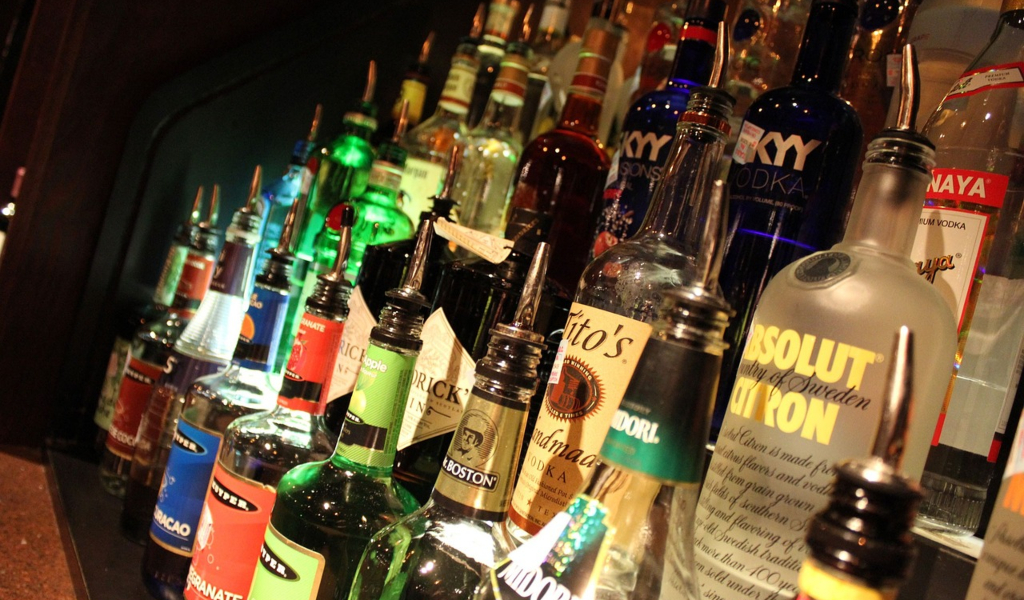The spirits sector is growing rapidly in Spain, so many need to know all about exporting alcoholic beverages. It is a market with many challenges, but with various opportunities and great profitability in economic terms. In this post, learn about some of the procedures for exporting liquors and explore this form of entrepreneurship.
What does liquor export involve?
Did you know that Spain is one of the leaders in the export of alcoholic beverages? Destinations such as Germany, the Philippines, the European Union, the United States, and Latin America have been maintained over the years. Despite the challenges, it is a sector that has grown, representing a business opportunity that has benefited many companies.
However, being a wholesale alcoholic beverage distributor and engaging in alcohol export involves more than producing drinks. It is necessary to design a business plan with objectives, goals, strategies, and an action plan to reach the target market and achieve loyalty.
The process also requires analyzing pricing policy, seeking specialized buyers or suppliers, an advanced logistics system that guarantees to maintain quality. Additionally, it involves knowing about international trade, as well as the stages involved in each transaction. .
What you need to know before exporting alcoholic beverages
Spain is one of the countries widely recognized for the production of high-quality wines and spirits. Being in a geographically privileged area, it is a suitable point for the export of these types of products. However, exporting alcoholic beverages is not a simple task, though not impossible.
It is a market with high demand and potential, but it is also a highly regulated and competitive sector, which requires good planning, research, and advice. Before embarking on the adventure, you should consider some key aspects, such as:
- Having a brand, with a European patent or applying for a permit that allows you to operate in other countries.
- The product you want to export. You must know its characteristics, its quality, its price, its differentiation, and its adaptation to the target market. Also, you must know if it can be exported.
- Study the market you want to target. It is necessary to analyze the size, segmentation, competition, consumption habits, preferences, entry barriers, and opportunities.
- The strategy you will follow. In the planning, you must define an objective, the value proposition, positioning, the distribution channel, pricing policy, promotion, and after-sales service.
- The resources you will need. Calculate the budget, time, personnel, logistics, suppliers, and partners you will need to carry out your project.
Moreover, for it to be successful, you must hire personnel expert in foreign trade of wines and spirits, as well as seek advice from public or private bodies that provide information. Do not forget to evaluate the competition, which can be fierce and challenging.

Procedures for Exporting Alcoholic Beverages from Spain
Once you understand what the export of alcoholic beverages in Spain entails, you must move on to the legal, fiscal, and logistical procedures. These can vary depending on the destination country, the volume of the cargo, and even the type of alcoholic beverage. Some of the most important are:
Basic Documentation
- Proof of registration in the Special Registry of Foreign Trade Operators (REOCE) of the Ministry of Industry, Commerce, and Tourism.
- The EORI number, which is a unique identifier for economic operators who carry out foreign trade transactions through customs in the European Union.
- The Certificate of Origin, which certifies the place of origin of the alcoholic beverages. It can be indispensable for benefiting from preferential trade agreements.
- Having the bill of lading, international consignment note, or airway bill, depending on the type of transport used.
- The ATA carnet, which is a unified customs document that facilitates the crossing of goods across the border in at least 75 countries members of the ATA System. It also allows for the exemption or deferred payment of duties.
Customs and Tax Documentation
- The DUA document, which is a customs export procedure, detailing the characteristics of the goods and the exporter.
- The tax registration declaration at the Tax Agency, which is the record of the start of international activity.
- Registration in the census of intra-community operators.
- The payment of excise taxes, which are taxes on the consumption of certain products, including alcoholic beverages. The amount of these taxes depends on the graduation and the type of drink and is calculated on the volume or the content of pure alcohol.
- INTRASTAT declaration for merchandise circulation data.
- The payment of VAT, which is applied to the value of the merchandise and transportation costs to the border.
Taxes Inside and Outside the European Union
In addition to the commercial invoice and the taxes paid in Spain, you must consider those applied in the destination country. The amount can vary depending on the type of drink, the alcohol content, the packaging, the labeling, among other factors. The European Union's Mercantile Organization is responsible for certifying the information, based on the certificate of production and the report from the country of origin of the product. .
For exports within the European Union, it is necessary to comply with the EMCS (Excise Movement Control System). It is a computerized system that allows the electronic control of movements of products subject to excise duties.
For exports outside the European Union, it is necessary to consult the tariff rate of the destination country. All shipments must have the necessary documentation for the control and verification of the applicable taxes. Depending on the type of product or spirit, it may be subject to a special tax. .
International Regulations
International Regulations for the export of liquors vary according to the destination country. For example, to export alcoholic beverages to the United States, it is necessary to verify the alcohol level to comply with the regulations. If the graduation is above 7%, you must appear before the federal Alcohol and Tobacco Tax and Trade Bureau (TTB), but if it is lower, comply with the regulations imposed by the U.S. Food and Drug Administration (FDA).
In addition to taxes, it is necessary to comply with the sanitary, phytosanitary, quality, safety, and labeling regulations required by the destination country. Each country has specific requirements that apply to the type of product and market, so it is necessary to obtain the certificates, registrations, permits, or authorizations that are necessary. In some cases, the process can be stricter than Spanish or European regulation.
European Union Regulations
European Union regulations govern the general and specific aspects of the production, labeling, traceability, and marketing of alcoholic beverages. The European Union's Mercantile Organization certifies the presentation, labeling, and packaging. It also enforces protected designations of origin, protected geographical indications, and guaranteed traditional specialties.
For example, ethyl alcohol used to make spirits and other alcoholic beverages must be exclusively of agricultural origin. Also, it must be indicated on the label of all products, with an alcohol level higher than 1%, the risk of allergies and intolerance.
For more information, you can consult the Spanish Agency for Consumer Affairs, Food Safety, and Nutrition..
Tips for Exporting Alcoholic Beverages
As already mentioned, the market for exporting alcoholic beverages has grown substantially in Spain, despite the challenges. Therefore, in addition to carrying out the procedures and complying with the regulations, some tips to make the process a success include:
- Conduct a market study. This will allow you to understand the characteristics, opportunities, and threats of the market you are targeting, and adapt the product and strategy to its needs and preferences. Understanding demand will allow you to make good use of opportunities.
- Seek specialized advice. Experts in foreign trade can resolve doubts, avoid mistakes, and save time and money. You can turn to chambers of commerce, sectoral associations, promotion agencies, or consultants.
- Participate in international promotion events. Attend fairs, business meetings, or tastings, which will allow you to introduce the product, contact potential clients, distributors, or partners, and build trust and reputation.
- Consider logistics and transport. These are key factors to ensure the quality, safety, and timeliness of the product. Choose the most suitable means of transport, the most resistant packaging, the most convenient insurance, and the most professional logistics operator.
- Take care of after-sales service. This is fundamental to retain customers, generate recommendations, and resolve potential issues. Offer personalized attention, a satisfaction guarantee, a return policy, and continuous follow-up.

Internationalization of Alcoholic Beverages
To consolidate your presence in the international market with the commercialization and distribution of alcohol, you can opt for the internationalization of alcoholic beverages. This process involves establishing a close and lasting relationship with the destination country. To achieve this, you can use different methods, such as:
- Indirect export, which consists of delegating the product sale to a local intermediary, who handles distribution, promotion, and payment. There are companies that take care of logistics and procedures that help to yield excellent benefits.
- Direct export, which refers to selling the product directly to the end customer, without intermediaries, assuming control and risk of the operation. In this case, intermediary costs are eliminated, increasing profit.
- Licensing or franchising, which involves ceding the use of the brand, technology, or proven business model in exchange for an economic gain. It is a viable option but complex to apply.
- E-commerce is an attractive alternative for those who wish to start small and explore available opportunities. In this case, it is necessary to invest in an excellent logistics process and have all the required licenses or permits available.
The Rise of Alcohol Exportation in Spain
Spain is one of the leading countries in alcohol exportation, both in volume and value. It exports 40% of its production of spirits or alcoholic beverages, ranking as the fourth largest exporter in the world, only behind France, the United Kingdom, and Germany. This is due to factors such as the quality and variety of Spanish products, which have a great reputation, denominations of origin, and quality seals that endorse them.
Moreover, it has an innovation system and adapts to new trends that seek healthier, ecological, artisanal, and personalized products, satisfying consumer demand. All this, without forgetting the support and promotion of public and private institutions, which offer information, advice, and help to facilitate the process.

